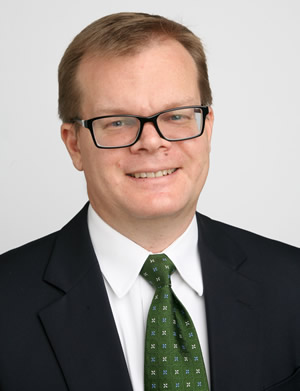
On October 1, New York Times correspondent Michael Forsythe delivered a Poytner Fellowship in Journalism Lecture titled “Guarding Press Freedoms in the New Gilded Age: The Challenge of China.” The event was co-sponsored by the Council on East Asian Studies at Yale University and Berkeley College.
Prior to serving as a staff reporter for The New York Times Hong Kong Bureau, Forsythe spent 13 years working for Bloomberg News in its Hong Kong, Beijing, and Washington Bureaus. During Forsythe’s last two years at Bloomberg, his series of stories about the wealth of China’s political elite garnered him numerous accolades, specifically the George Polk Award and the Asia Society’s Osborn Elliott Award, both in 2013. These stories resulted in a clash with Bloomberg, particularly when the news agency refused to publish one story in deference to Chinese government concerns and suspended Forsythe, sparking debate about press freedoms in China.
Forsythe’s lecture centered on a Theodore Parker quotation that inspired the speeches of both Abraham Lincoln and Martin Luther King, Jr.: “The arc of the moral universe is long, but it bends toward justice.” In this context, Forsythe examined the beginning of the “Chinese century,” and remarked that “the world will benefit enormously from China’s economic dynamism and the creativity of its people.”
However, Forsythe cautioned that “the challenge posed by China is already fraying freedom at its edges.” Despite being a socialist country, he compared the vast disparity in China’s wealth accumulation to the less polarizing growth of Japan, Korea and Taiwan when they each turned toward capitalism. Lack of transparency has been paired with China’s economic growth, and as undisclosed assets increase, moderate Chinese activists are being jailed for trying to report on the situation.
What will it mean for the “arc of the moral universe” to have the world’s leading economic power soon be a country that doesn’t tolerate freedom of speech, freedom of the press, or the freedom to assemble? Reflecting upon his experience at Bloomberg from last year, Forsythe recalled how the coercive force of Chinese economic power had the ability to keep one of the world’s leading news sources from publishing an edited, fact-checked, and lawyer-checked story. He commented that “to be able to influence how a U.S. news agency reports on a country is power in the new Gilded Age.”
Forsythe questioned a world where the leaders of the top economic power are shielded from scrutiny, and criticized countries that allow their global interests and fear of profit loss to drive concessions, irrespective of what is right and wrong. He spoke about how “in the new Gilded Age, money talks and morals walk” and referenced how Hong Kong tycoons with close ties to Beijing have been able to control the media. Apple Daily, a popular Hong Kong newspaper known for criticizing China, lost millions of dollars-worth of advertising when three major international banks pulled their ads because of alleged pressure from Beijing. The recent climate has led to increased self-censorship, and Hong Kong has dropped three places to 61st place on the Reporters Without Borders world press freedom index rankings in the past year.
He also warned that these effects are not limited solely to the press. Movie studios today are not willing to get shut out of the Chinese market by taking an honest look at the country. “It’s impossible to imagine Hollywood tailoring movies in the 1950s not to offend the Soviet Union, but China has that effect in the new Gilded Age.” While Forsythe notes that this is something that often occurs with the confluence of politics and global wealth, he argues that what most concerns him are the compromises that those outside of China seem to be making especially with regard to press freedom.
Forsythe concluded, “While there is no crisis right now, there is evidence that on the edges – particularly with the media – freedom is being frayed. It is important that we do our part bending ‘the arc of the moral universe’ toward justice.”
